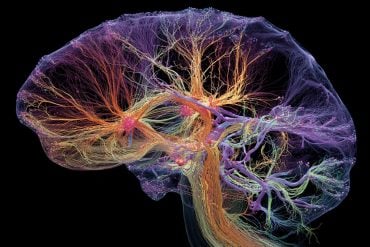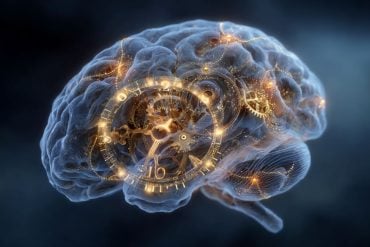Summary: Researchers made a breakthrough in memory research by genetically modifying the LIMK1 protein, crucial for memory, to be controlled by the drug rapamycin.
This study demonstrates the ability to enhance memory functions by manipulating synaptic plasticity in the brain.
The engineered protein showed significant memory improvement in animal models with age-related cognitive decline, offering potential for innovative treatments for neuropsychiatric diseases like dementia. This ‘chemogenetic’ approach, blending genetics and chemistry, opens new avenues in neurological research and therapy.
Key Facts:
- The LIMK1 protein, essential for memory formation, was genetically modified to be activated by rapamycin.
- The modification improved memory in animal models, suggesting potential for treating memory-related neurodegenerative diseases.
- The study represents a pioneering ‘chemogenetic’ strategy, offering a new method to control synaptic plasticity and memory functions.
Source: Universita Cattolica del Sacro Cuore
Neuroscientists at the Faculty of Medicine and Surgery of the Catholic University, Rome, and the Fondazione Policlinico Universitario Agostino Gemelli IRCCS have genetically modified a molecule, the protein LIMK1, which is normally active in the brain, with a key role in memory.
They added a “molecular switch” that is activated by administering a drug, rapamycin, known for its several anti-aging effects on the brain.
This is the result of a study published in the journal Science Advances, which involves the Catholic University, Rome, and the Fondazione Policlinico Universitario Agostino Gemelli IRCCS. The study was coordinated by Claudio Grassi, Full Professor of Physiology and Director of the Department of Neuroscience.
The research, supported by the Italian Ministry of Education, University and Research, the American Alzheimer’s Association Foundation, and the Italian Ministry of Health, has great potential applications, by improving our understanding of memory function and facilitating the identification of innovative solutions for neuropsychiatric diseases like dementia.
The LIMK1 protein plays a crucial role in determining structural changes in neurons, namely the formation of dendritic spines, which enhance information transmission in neural networks and are crucial in learning and memory processes.
Prof. Claudio Grassi, senior author of the study, explains: “Memory is a complex process that involves modifications in synapses, which are the connections between neurons, in specific brain areas such as the hippocampus, which is a neural structure playing a critical role in memory formation.
“This phenomenon, known as synaptic plasticity, involves changes in the structure and function of synapses that occur when a neural circuit is activated, for example, by sensory experiences. These experiences promote the activation of complex signaling pathways involving numerous proteins” Prof. Grassi adds.
“Some of these proteins are particularly important for memory, in fact reduced expression or modifications of these proteins are associated with alterations in cognitive functions.
“One of these proteins is LIMK1. The goal of our study was to regulate the activity of this protein, as it plays a key role in the maturation of dendritic spines between neurons. Controlling LIMK1 with a drug means being able to promote synaptic plasticity and, therefore, the physiological processes that depend on it,” Prof. Grassi emphasizes.
Cristian Ripoli, Associate Professor of Physiology at the Catholic University, and first author of the study, adds: “the key to this innovative ‘chemogenetic’ strategy, which combines genetics and chemistry, is precisely linked to the use of rapamycin”, an immunosuppressive drug known to increase life expectancy and for its beneficial effects on the brain, in preclinical models.
“We have therefore modified the sequence of the LIMK1 protein by inserting a molecular switch that allowed us to activate it, on command, through the administration of rapamycin” Prof. Ripoli emphasizes.
“In animals with age-related cognitive decline, using this gene therapy to modify the LIMK1 protein and activate it with the drug resulted in a significant memory improvement. This approach allows us to manipulate synaptic plasticity processes and memory in physiological and pathological conditions.
“Furthermore, it paves the way for the development of further ‘engineered’ proteins that could revolutionize research and therapy in the field of neurology,” the expert emphasizes.
“The next step will be to verify the effectiveness of this treatment in experimental models of neurodegenerative diseases exhibiting memory deficits, such as Alzheimer’s disease. Further studies will also be necessary to validate the use of this technology in humans” Prof. Grassi concludes.
About this memory research news
Author: Nicola Cerbino
Source: Universita Cattolica del Sacro Cuore
Contact: Nicola Cerbino – Universita Cattolica del Sacro Cuore
Image: The image is credited to Neuroscience News
Original Research: The findings will appear in Science Advances








